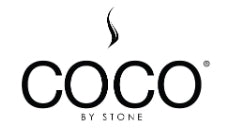
How Private Labeling Works
Private labeling is a business arrangement where a manufacturer produces goods and allows another company to label those products with their own branding. Here’s how it typically works:
1. Product Selection
The private labeler chooses a product they want to sell. This could be anything from cosmetics to electronics to food products.

2. Finding a Manufacturer or Supplier
The private labeler then identifies a manufacturer or supplier who can produce the chosen product. This can often be done locally or through international sourcing.
3. Customization
The private labeler works with the manufacturer to customize the product to their specifications. This can include design, packaging, and even some variations in the product itself.

4. Branding and Labeling
The private labeler provides their branding, logo, and packaging design to the manufacturer. The manufacturer produces the product with these specifications, including the private labeler’s branding.
5. Quality Control
Quality control is crucial. The private labeler may visit the manufacturer or have third-party inspections to ensure the product meets their quality standards.

6. Ordering and Distribution
Once the product is ready, the private labeler can place orders and have the products shipped to their desired locations, whether that’s a physical store, online marketplace, or distribution center.
7. Marketing and Sales
The private labeler markets and sells the products under their brand name. They set pricing, manage sales channels, and handle customer service.

8. Profit Sharing
The private labeler typically pays the manufacturer for the production of the goods and keeps the profit from selling them. The manufacturer makes money from producing the products.
Private label offers businesses the advantage of selling products under their brand without the need to invest in manufacturing facilities or R&D. It can be a cost-effective way to enter a market and build a brand presence.





